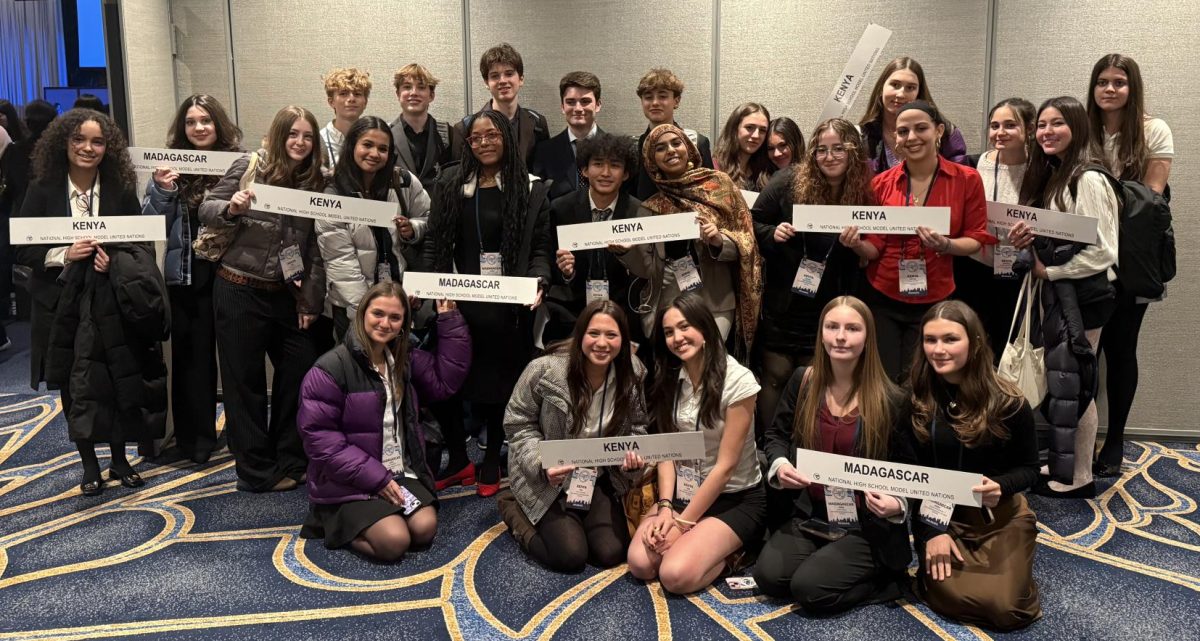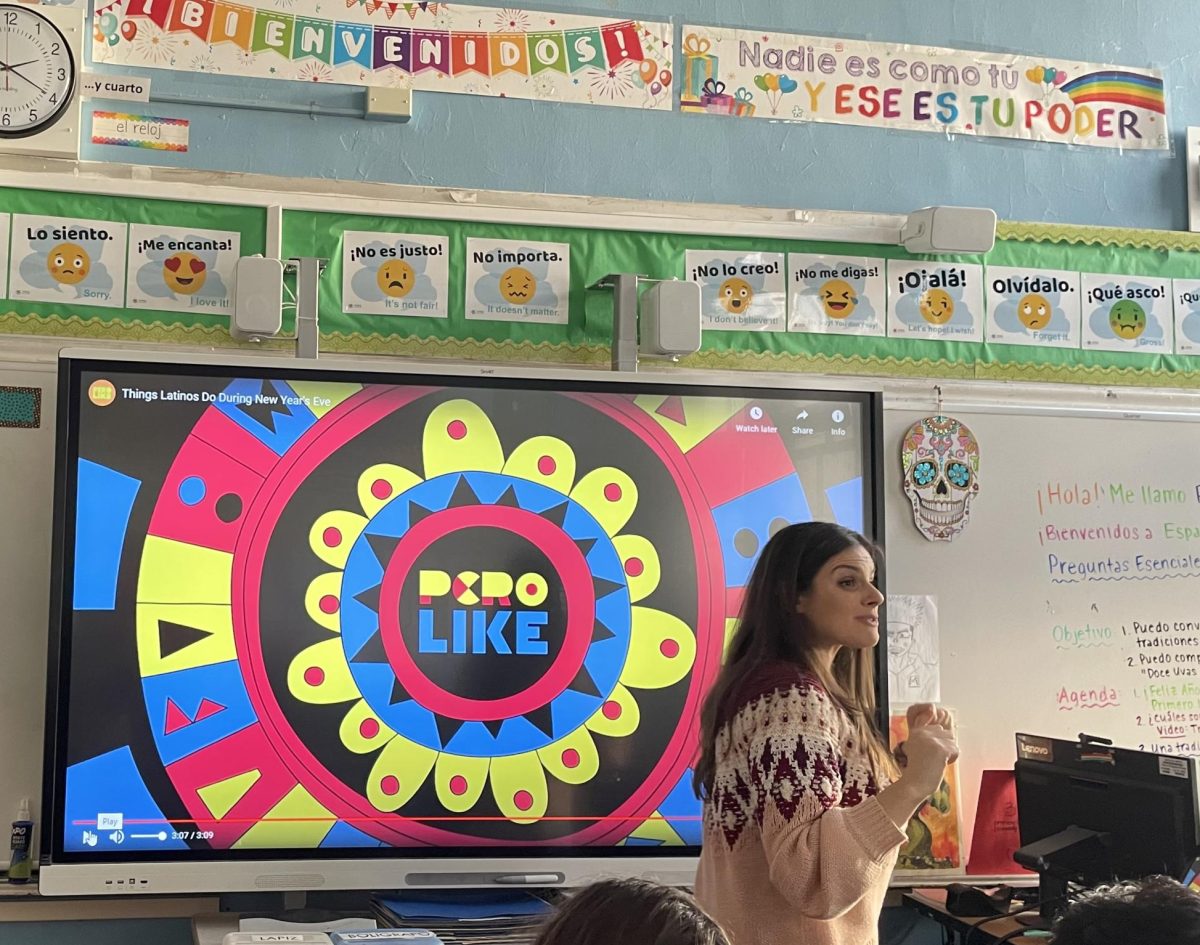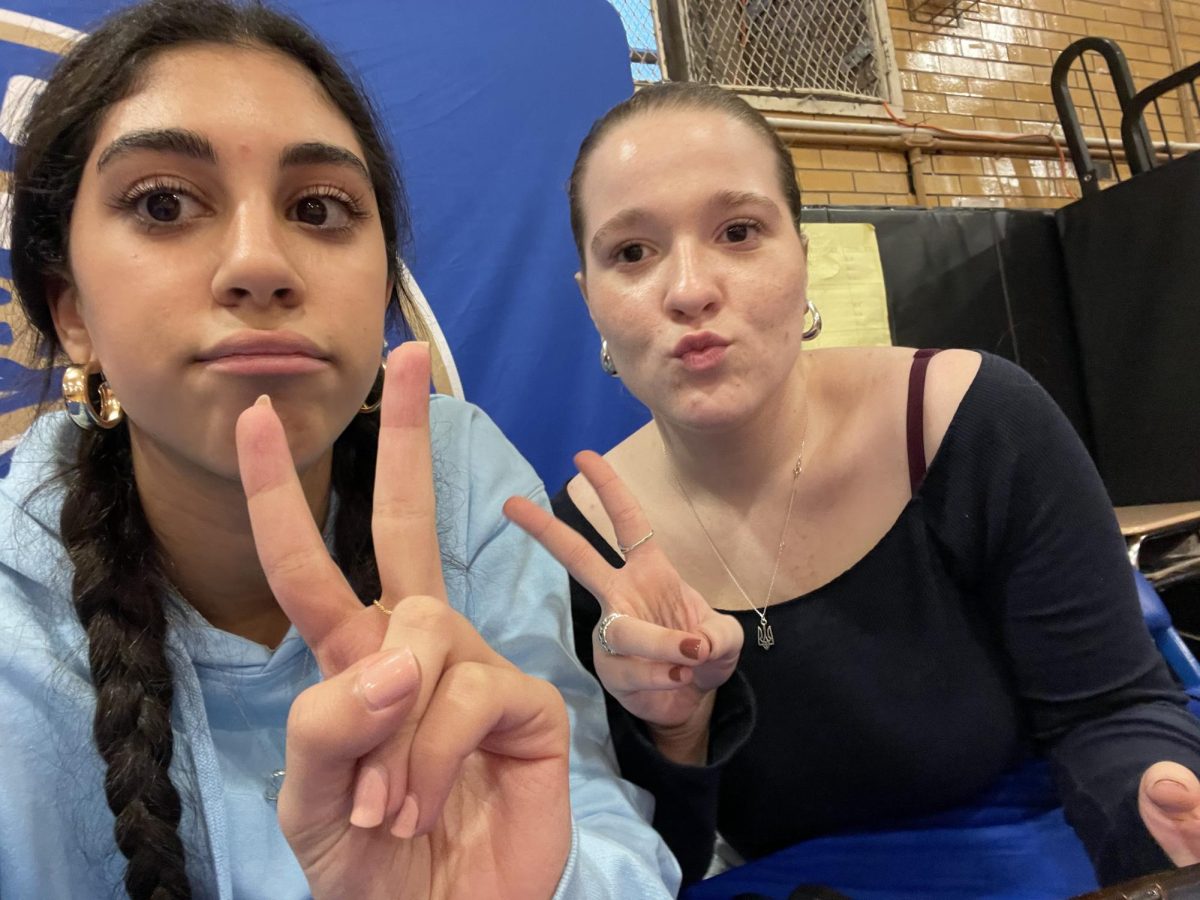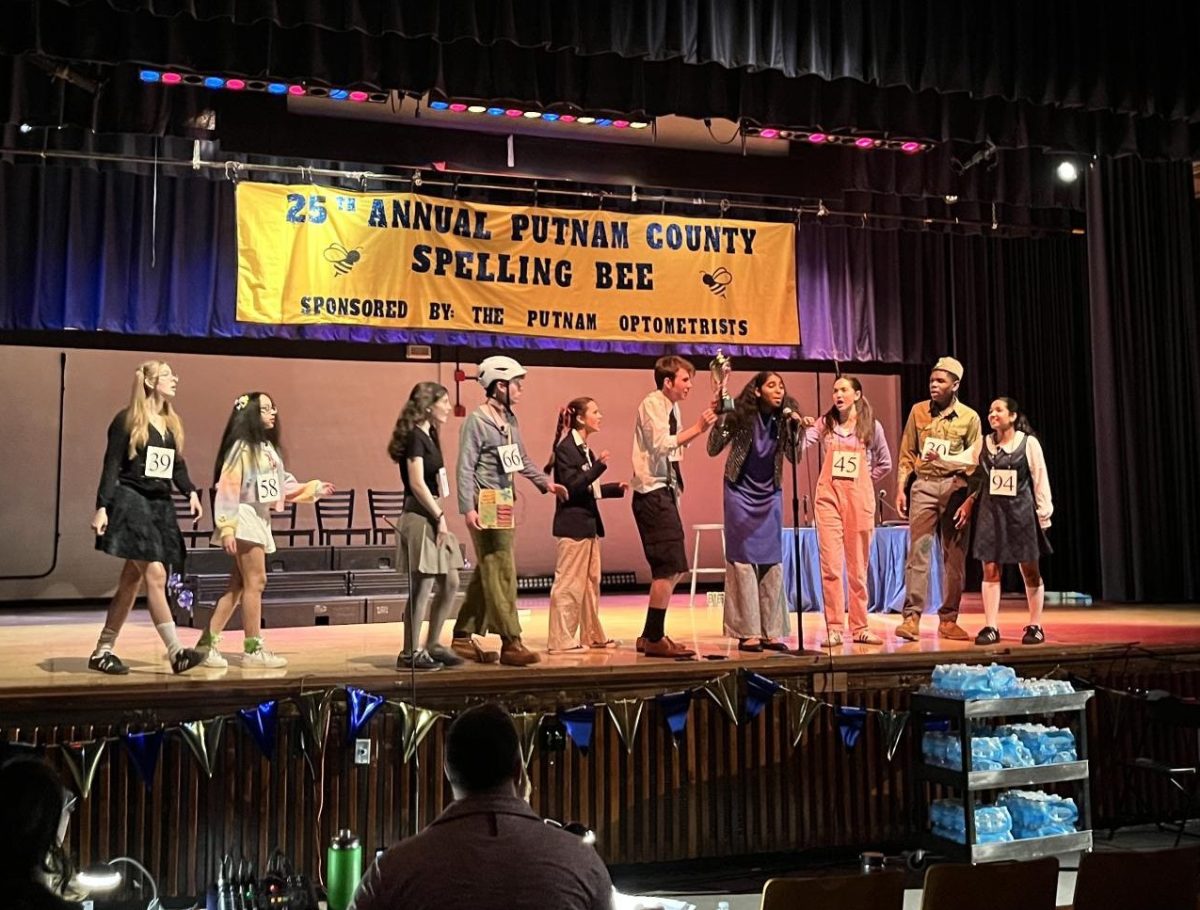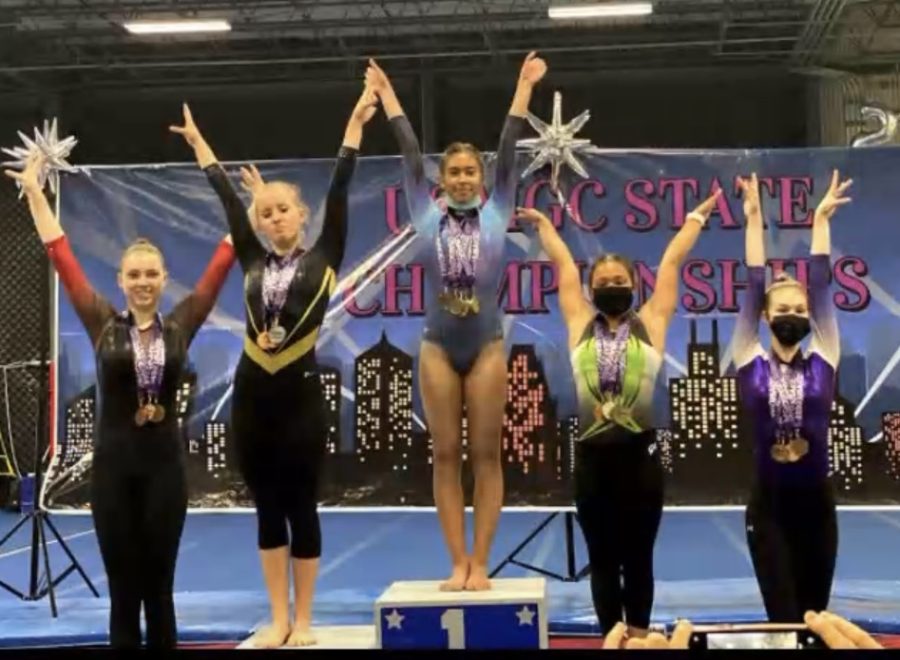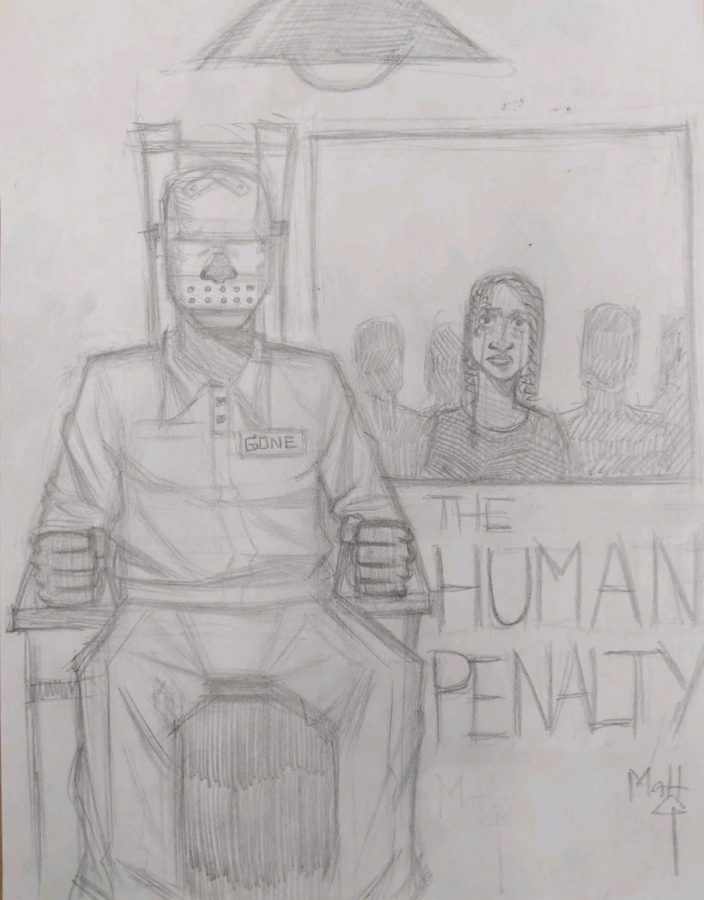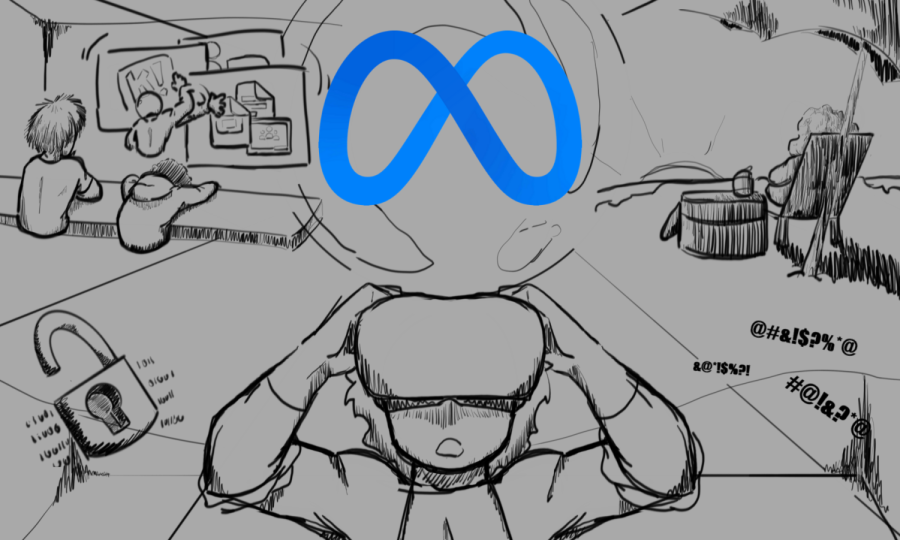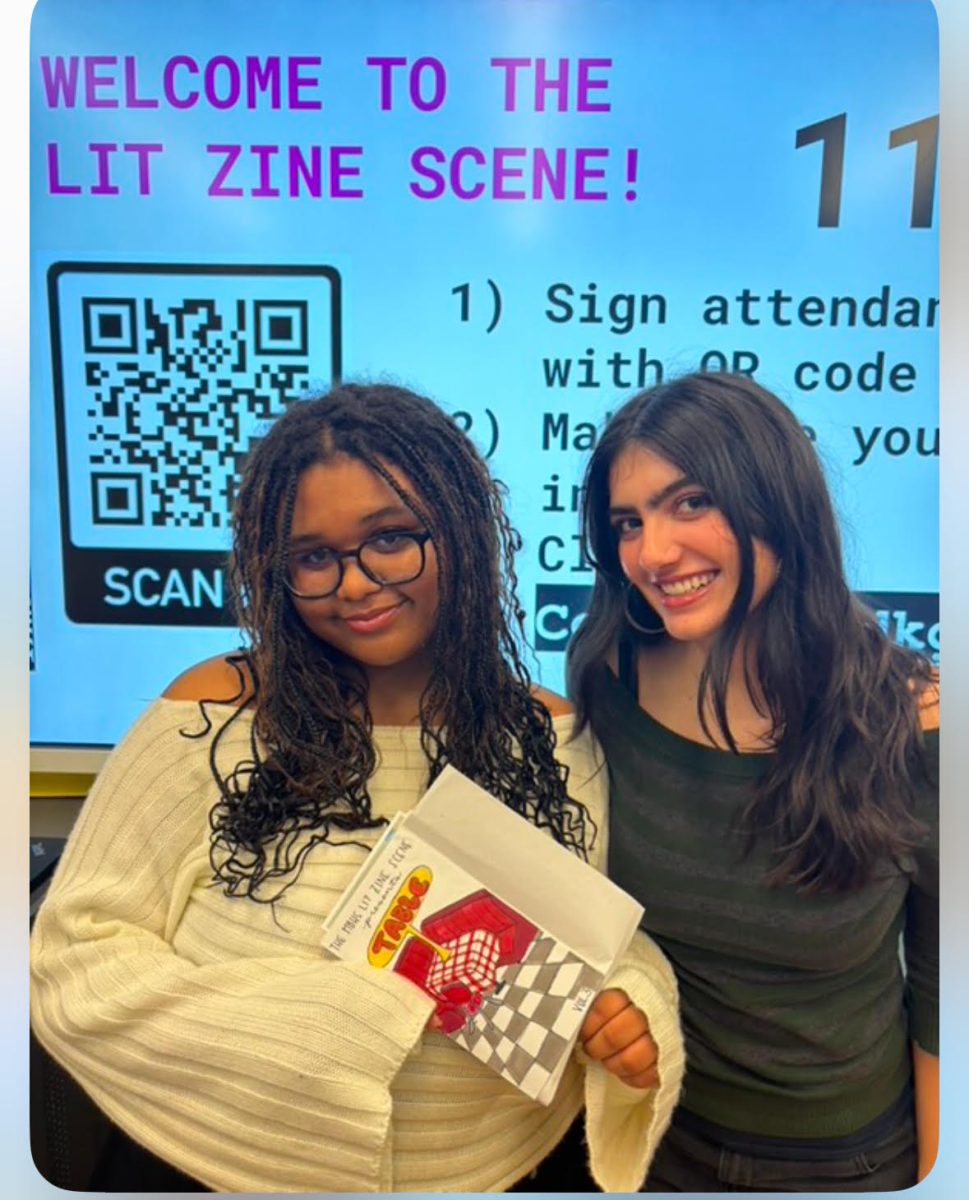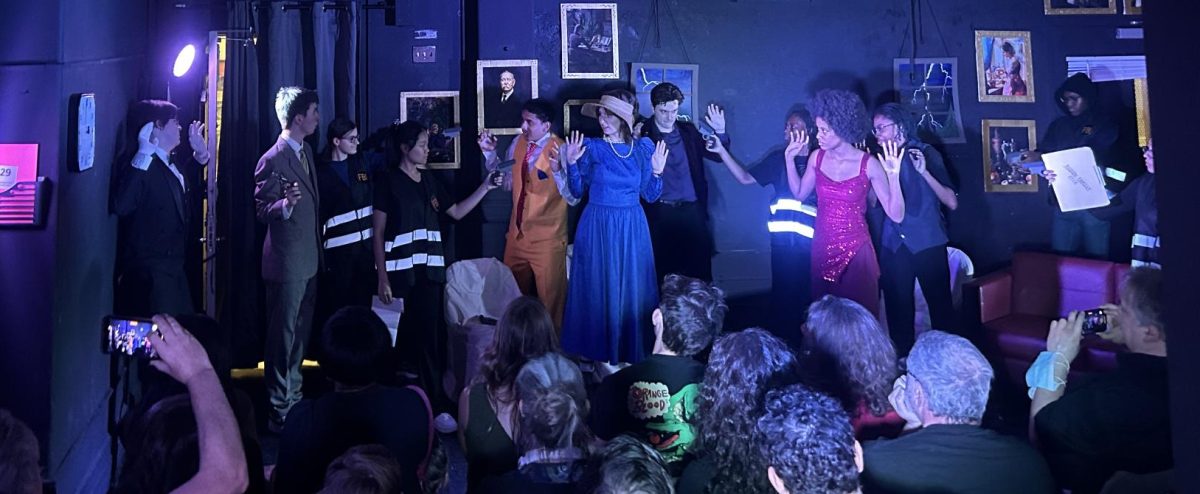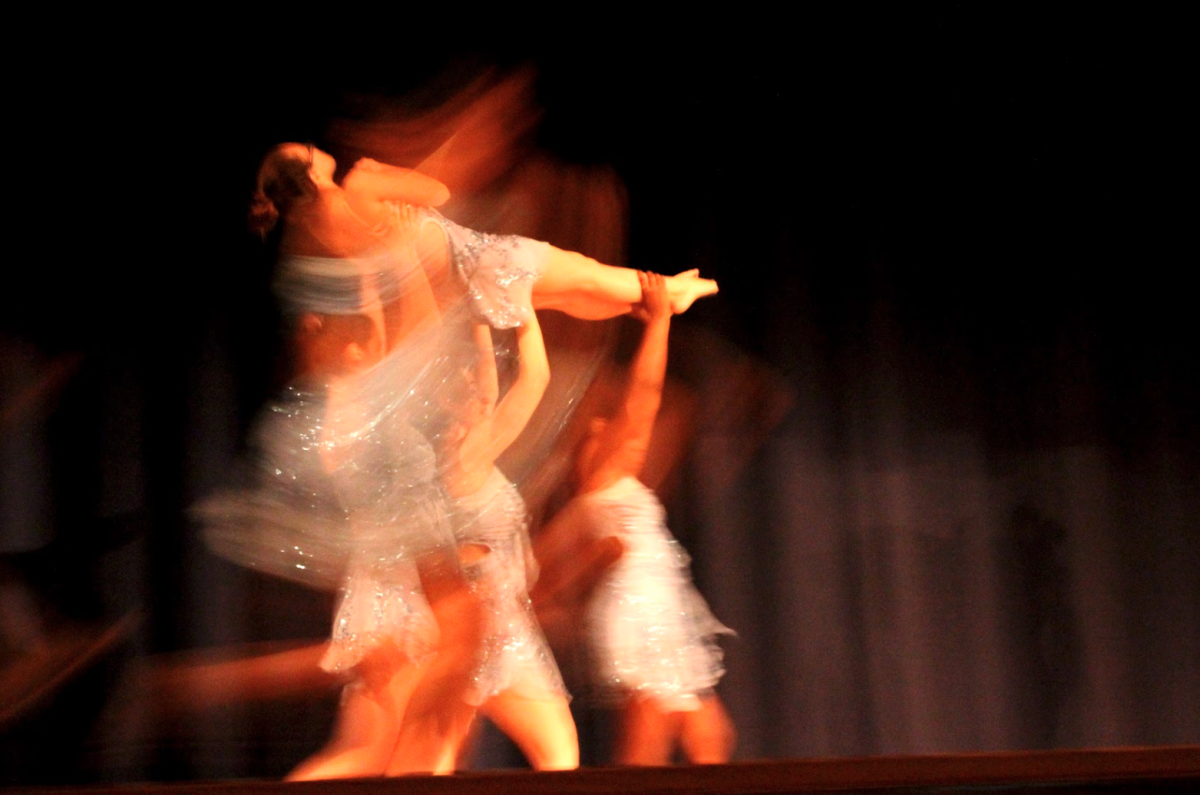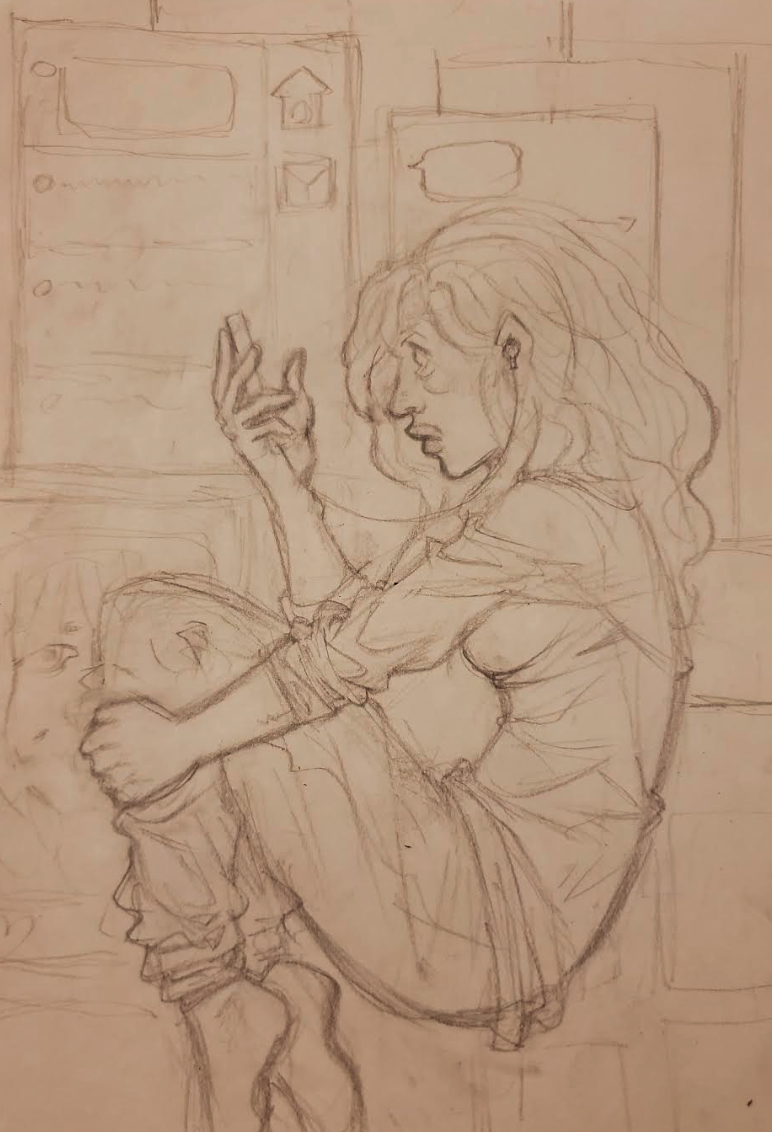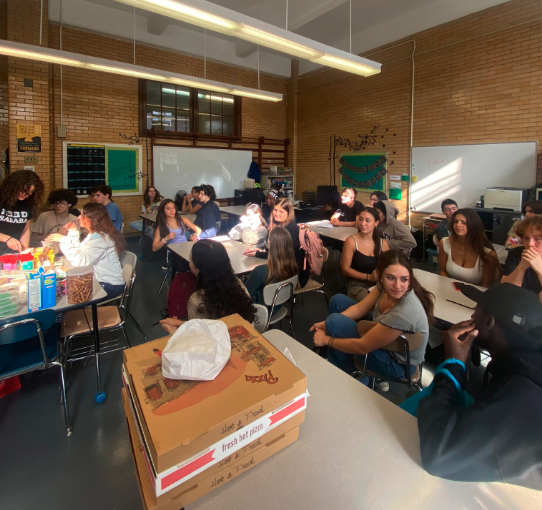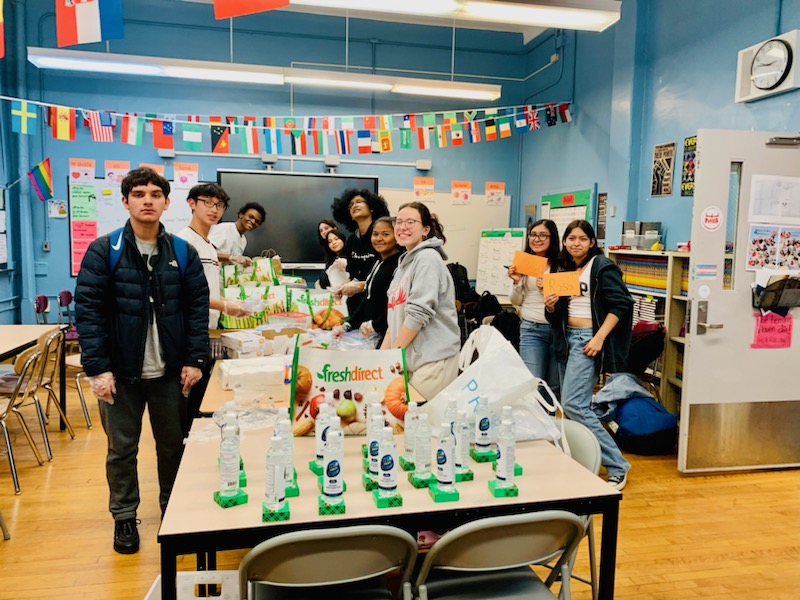At Millennium, we’ve returned to a steady rhythm of coming to school, staying for office hours and possibly attending a club, usually run by a teacher. But, what does it feel like to attend a club run by students? Millennium’s chapter of We the People is a new club founded in the 2022-23 school year by juniors Tina Zheng and Madison Selby, with Government teacher Ms. Gibeson as an advisor.
“We [are] focusing on what politicians are doing and why it’s important for us, especially as students, to be aware and possibly get involved,” Zheng explained as I sat down with her on a cold November afternoon to discuss her vision for the club. She had originally wanted to form a civics club in her sophomore year, but the initiative didn’t carry through. But in the fall of 2022 at a lunch gathering with friends, when Selby brought up her own idea for a future politicians club, the idea resonated with Tina. They agreed to collaborate on a club focused on civic engagement. “We wanted to nurture and foster this idea together,” said Zheng. So the two ambitious students joined forces and merged their ideas.
But What Is We The People?
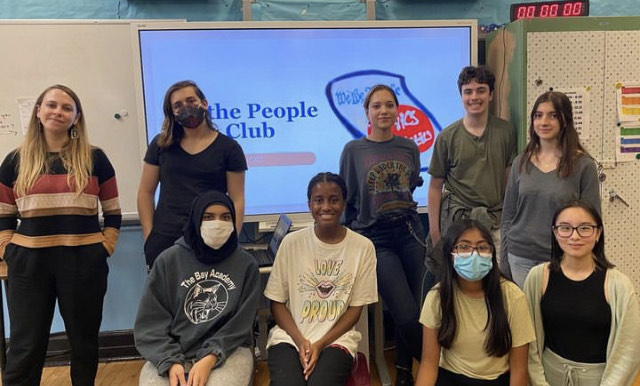
We The People’s main focus is to educate club members about the political and civic landscape in the United States. Recent club meetings centered on voting rights in New York, the process of getting involved in politics and how one can make a run for office. Selby, Zheng and Gibeson have established a space where the members can share their ideas and openly discuss the issues affecting the world by informing and listening to each other. This is the key element to the structure of the club. While the club leaders formulate agendas and slideshows to guide each meeting, Zheng and Selby also prioritize collecting input from all of the members. Zheng notes that it’s “an environment where we are constantly curious about what’s going on……[W]e want to know how we can take it further and do something about an issue that we might have had an interest in.”
When I walked into a recent We The People meeting in room 308 on a sunny Wednesday afternoon, only a few students were in attendance, but they were deep in conversation. The conversation centered on human rights violations stemming from the global migrant crisis and how they were tied to Western European economies like Germany and Italy. As the We The People members disu passionately about anti-immigrant sentiments across the Mediterranean region, other attendees listened thoughtfully and wanted to learn more.
The club’s communal spirit shone through when Ensaf Zafar, an honorary member, brought up the recent Iranian protests centered around women’s rights and free speech.“I’m surprised no one’s been talking about it,” she said, as she offered background on the protests and detailed the military structure in the country. When the conversation appeared to be turning toward a new issue, Zheng encouraged Zafar to delve further into this topic that she was concerned about.
Throughout the course of the meeting, the student discussion was thoughtful, guided by interests of club members and emphasized world events. Even when the group began to discuss the main lesson topic of voting in NYC, students tied the voting process to global issues. One noted that language barriers often prevent “people [from having] a voice in how our city is run.” No one student was trying to outshine someone else by flaunting their knowledge. Instead, they all listened studiously as peers shared facts on voting statistics or personal experiences. All the students were up to date on current events, especially those outside of the American news bubble, and they dissected the issues from their own perspective. No one stepped on anyone’s ideas, and they all stayed engaged, with everyone asking each other questions and maintaining a safe space to discuss such heavy topics. Each spoke on the subject as a teenager, not a world leader or an authoritative figure whose sole goal is to persuade you into thinking that they’re right. “That’s the motivation of the club,” Zheng attests. “To be a learning environment for people to feel that they’re in a safe space where we can help each other articulate why we feel [a certain] way.”
As the teacher advisor for the club, Ms. Gibeson believes that she has a relatively easy job. “I am not unique in the way that I believe that young people developing literacy around politics and theories of power and change is really important,” Gibeson says. “I think any opportunity to try and drive that home or to empower students to find that out for themselves is really appealing to me.” Selby and Zheng had sought Gibeson out as an advisor since she was a new 12th grade government teacher at the school, but the decision to have her on board brought some essential real world experience to the table. Gibeson had previously worked an urban planne. She had studied housing movements in Brazil, working with a regional agency in Chicago that dealt with climate change, and even working on the first municipal reparations program in the country. With all of this experience, she says that “understanding civics is a huge part of [her] identity” so it wasn’t hard to decide whether or not to join the students’ endeavor.
Although the intellect of the club members may seem intimidating, Tina brought up that no one should be pressured into feeling “like they have to [previously] know anything about what we discuss.” While it is a place for passionate students to discuss what they see throughout the world, it is also just as much of a space for students who are unfamiliar with politics and civics and still want to learn more.
We the People is a new, yet already established club that takes what’s going on in the world, and does something about it. Tina and Madison have managed to create a space where their members are able to simultaneously learn about the specifics of the country’s political affairs but also are highly encouraged to generate critical discussion about it and educate their peers on what they know too. Why do we need something like this? Like Tina said, “we’re the next generation and for us to have a voice in how our future is shaped, we have to start now.”
